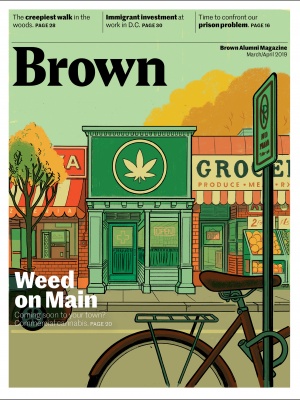Scarcely a day seems to go by without a new cannabis headline. As we got ready to wrap this issue in late February, two national stories broke: Senator Cory Booker of New Jersey proposed a bill to legalize marijuana nationwide; and Martha Stewart signed on to advise a Canadian cannabis company on developing products for both people and their pets.
By the time you’re reading this, you’ve doubtless seen many more stories. Each state is embroiled in its own debate. In Massachusetts, for instance, where recreational use is legal, a new focus is on how pot businesses can help build wealth in communities of color that may have been disproportionately harmed by the war on drugs. In Texas, which has limited medical statutes on the books, there’s law enforcement opposition toward any further softening in laws thanks to crime associated with illegal grow houses.
It’s a polarizing issue. On one hand, a quarter of the U.S. population is now able to buy cannabis recreationally, and many more can access it through medical-marijuana programs; polls seem to show public opinion supports the trend toward legalization. On the other, many people still strongly oppose making pot lawfully available, not least because research into its safety is in its infancy. Our cover story doesn’t set out to make judgements either way. What we did set out to do is pull together the very latest information we could find, in recognition of the fact that if the state you live in hasn’t grappled with this issue yet, it probably will soon.
We found that marijuana is, for better or worse, becoming a legitimate industry in the U.S. People are creating careers that go far beyond the usual chatter about grow rooms, gummy bears, and venture capital investors. From a law practice that specializes in cannabis counsel to an established pharmacist who now dispenses medical marijuana, the business touches walks of life that may surprise you.
Many people passionately believe in pot’s potential—to offset opioid use for pain, for instance. But we noticed, also, a pragmatic attitude: some seem to shrug their shoulders about the lack of hard science on pot’s safety or efficacy. It’s here, and always has been, the attitude seems to be. For these people, the real question is what to do about that.
And the fact is, we’ve been hearing from Brown alums involved in cannabis for years—so many that we’ve joked we should include edibles in our annual holiday gift guide. But principles aside, once we spent even a second thinking through the logistics of that plan, we realized what a strange and tenuous world marijuana entrepreneurs inhabit. Just for starters, the federal ban means makers cannot ship their products across state lines. Why on earth are so many smart people investing in businesses that can’t expand beyond their home states? The answer may actually lie in that precarious combination of federal ban and state decriminalizations. Sure, big corporations are carefully watching, poised to create Big Weed—but so far, they can’t. It’s too hard to scale up. The space that leaves for start-ups may be part of the reason why, despite the risks, the industry is attracting so many entrepreneurs—Brown graduates among them.





